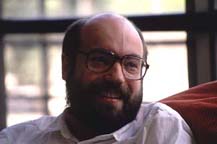
On December 7, 2020, Bin, who is a single career woman, gets up to a sweet melody. The electric bulletin board on her bed shows her temperature, blood-sugar level, and biorhythm.(p1) She washes her hair and watches TV through a mirror in the bathroom.(p2) When Bin arrives at her company, she says “Hello” to a statue that stands at the entrance of the company.(p3) The statue reads her voice and iris and opens the entrance. As soon as Bin enters her office, the light, computer, and coffee pot turn on. Her work starts as her secretary within a monitor tells her her schedule.(p4) When Bin wants to eat a delicious meal, she can find a restaurant using her cell phone after she inputs the information that she wants. If she wants a warm room when she comes home, she can control the temperature of the house by pressing buttons on her cell phone. When she says “Good night” and goes to bed, all the lights turn off, and then the moon and stars appear on the ceiling. Do you think that Bin's day is possible? Her day will become your day in the close future. Now, let's go into ubiquitous' world!
 What Is Ubiquitous?
What Is Ubiquitous?“Ubiquitous computing” was coined by Mark Weiser. He talked about ubiquitous computing in his thesis “Scientific American.” He said, “Ubiquitous computing is an environment where people don't actually see a computer because it is within goods, but they can connect to it everywhere.” Namely, ubiquitous implies accessing a network anywhere using a computer. Mark Weiser called ubiquitous computing the third wave. The first wave was the mainframe era. A lot of people shared a huge and expensive computer. The second wave was the personal computer (PC) era. This wave was one computer to a person. Now, we are in the personal computer era. The third wave will be the ubiquitous computing era. People will use various things with a built-in computer.
Ubiquitous has three special features. First, ubiquitous Computers connect to a network. Computers must offer a good service to people who move everywhere. Therefore, an electronic calculator is not ubiquitous because it doesn't connect to a network. Second, people don't recognize that they are using a computer. Mark Weiser asserted, ubiquitous computing is an invisible computer. He added that a computer should become just like a paper. People read the letters on a paper such as a newspaper or a magazine, but they don't recognize the existence of the paper. The goal of ubiquitous is a world where a computer becomes a portion of life: people don't feel that they have used computers. Finally, ubiquitous changes service according to circumstances. Ubiquitous can change service according to who the user is and the circumstance that the user is placed in.








